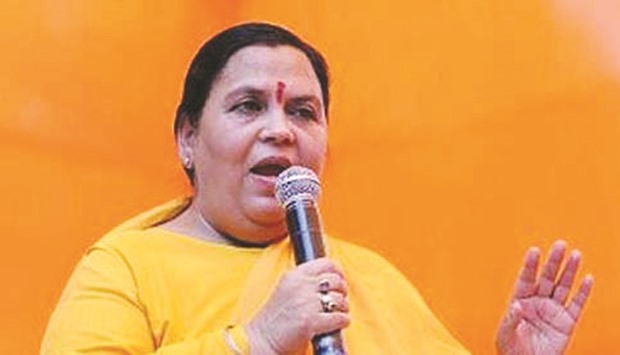Water Resources Minister Uma Bharti caused a storm last week when she told supporters that she used to order rape suspects to be beaten in front of their victims and then have salt and chillies rubbed into their wounds while she was chief minister of Madhya Pradesh.
“I told the police to hang the men upside down and beat them so much that when their screams were heard by the women, then the women would get closure,” Bharti said at an election rally in Agra.
Bharti also told supporters of Prime Minister Narendra Modi’s Bharatiya Janata Party (BJP) that she had no compassion for the “inhuman rapists” and that they deserve “no mercy”.
But London-based rights group Amnesty said her comments were dangerous and she should be prosecuted for violating basic human rights principles and Indian laws if she had in fact ordered such treatment.
“Torture is always a crime, and is never justified. Politicians cannot decide that certain people do not have human rights,” Aakar Patel, the head of Amnesty in India, said in a statement.
He urged the authorities to investigate her claims and role of police officials who carried out the orders and prosecute the guilty.
Bharti, who is known for her firebrand politics, made her comments while campaigning in Uttar Pradesh, where the BJP is fighting to dislodge the ruling socialist party in state elections.
India has a gruesome record on rape, which was highlighted by a murderous sexual assault on a student on a bus in New Delhi in December 2012. Nearly 40,000 rape cases are reported every year but the real number is thought to be much higher, with victims wary of how their complaints will be dealt with by police. While custodial torture is illegal, its use is thought to be widespread and at least 675 people were killed in custody between 2009 and 2015, according to a recent report by the New York-based Human Rights Watch.

